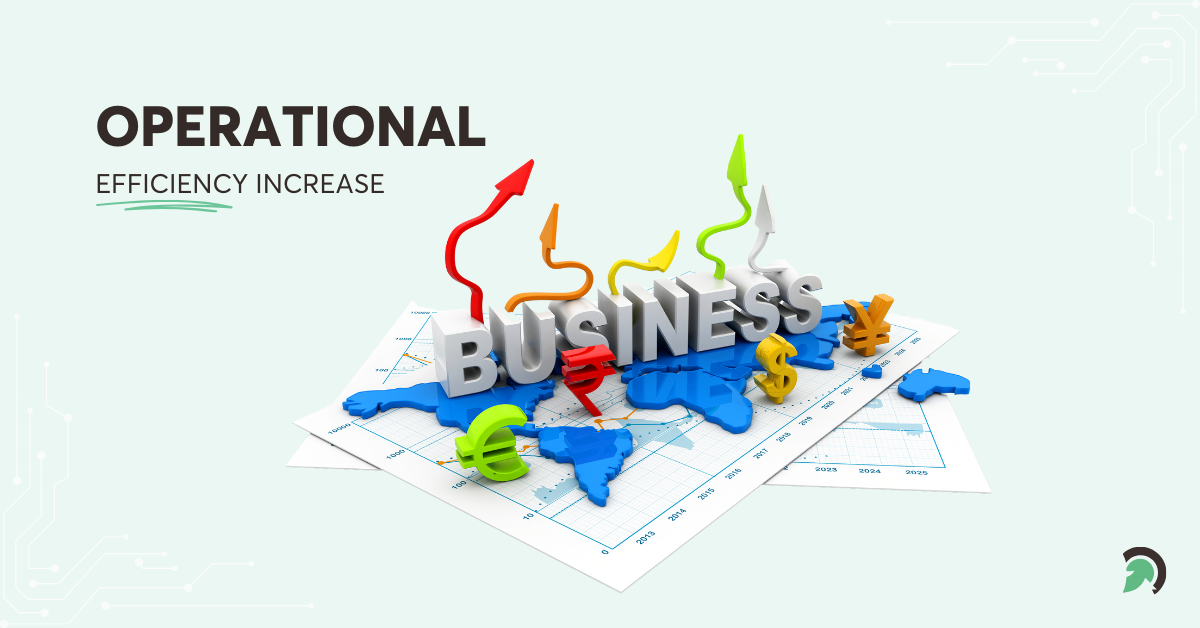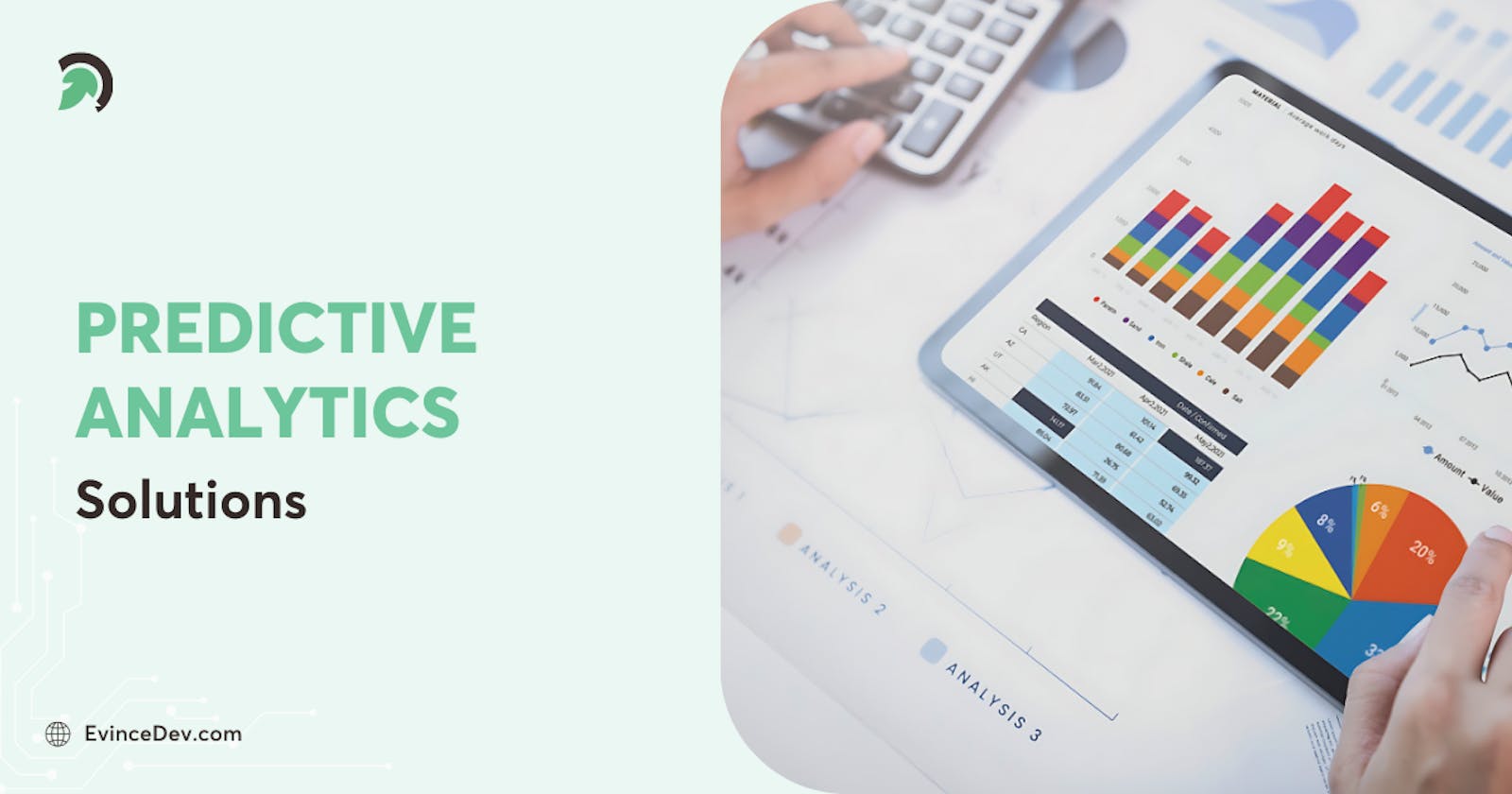Insightful Futures: Adopting Predictive Analytics Software Development for Business Growth
Transforming Insights into Action: The Role of Predictive Analytics in Business Evolution and Empowering Organizations to Make Informed Decisions that
n the dynamic world of modern business, data-driven decision-making has become a cornerstone of success. Companies that utilize the power of data analytics achieve a competitive edge by making informed choices based on insights obtained from vast amounts of information.
Among the myriad tools available for data analysis, predictive analytics software development stands out for its ability to unlock business growth by forecasting trends, identifying risks, and enabling proactive strategies.
Predictive analytics software comprises a range of techniques and algorithms that analyze historical data to predict future outcomes.
Its role in business growth is intense, allowing organizations to anticipate market trends, customer behavior, and potential risks. Businesses can optimize operations, enhance customer experiences, and drive profitability by employing predictive analytics.
Predictive analytics software can significantly benefit specific industries or company sizes. For example, retail, healthcare, finance, and government industries can use predictive analytics to gain actionable insights and drive strategic decision-making.
Similarly, businesses of all sizes, from startups to enterprises, can utilize the power of predictive analytics to scale effectively & stay ahead of the competition.
Understanding the Power of Predictive Analytics
Market Growth
The global predictive analytics market has been experiencing robust growth, underscoring the increasing adoption and recognition of its power in driving business success.
According to Markets & Market reports, the predictive analytics market size was around $10.5 billion in 2021 and is projected to reach over $28.1 billion by 2026, representing a CAGR of approximately 21.7%.
The exponential growth is driven by factors such as the growing volume of data, advancements in artificial intelligence & machine learning technologies, and the rising demand for data-driven decision-making across industries.
Informed Decisions, Better Outcomes
The statistics below highlight the tangible benefits that businesses experience when employing predictive analytics software.
- Improved Profitability
Studies reveal that companies using predictive analytics achieved an average revenue increase of 5%.
By analyzing customer behavior, market trends, and operational data, businesses can identify chances to increase sales, optimize pricing strategies, and enhance customer satisfaction, ultimately improving financial performance.
- Increased Efficiency
Predictive analytics software helps businesses streamline processes, automate repetitive tasks, and allocate resources more effectively.

Research indicates that organizations using predictive analytics experience an average 10-15% improvement in operational efficiency. Businesses can achieve higher productivity and faster decision-making by optimizing workflows and resource utilization.
- Reduced Costs
Predictive analytics leads to cost savings across various areas, including marketing, inventory management, and risk mitigation.
Studies show that businesses can reduce their operational costs by up to 3% through predictive analytics implementation. Businesses can lower overall costs and improve their bottom line by identifying inefficiencies, minimizing waste, and preventing potential risks.
The above statistics demonstrate the tangible impact of predictive analytics software on businesses. It allows them to make data-driven decisions that result in improved profitability, increased efficiency, and reduced costs, driving sustainable growth and competitiveness in today’s dynamic market landscape.
Mitigating Risk, Proactive Strategies
To mitigate risk and adopt proactive strategies in predictive business analytics, focus on identifying potential risks and securing emerging opportunities. By doing so, you can enhance decision-making and drive business growth effectively.
Potential Risks Identification
To avoid faulty predictions, ensure data quality using accurate, relevant, and up-to-date data.
Beware of models that overfit historical data, leading to inaccurate predictions.
Consider external factors like regulatory changes, market shifts, and cybersecurity threats that may impact predictive models.
Assess data breaches, cyber-attacks, and ethical/legal compliance risks to avoid consequences.
Emerging Opportunities for Proactive Action
Implement real-time data monitoring to detect anomalies and take prompt action.
Conduct scenario planning to prepare for various outcomes and improve decision-making.
Promote collaboration among experts for diverse perspectives and insights.
Continuously improve predictive models based on feedback and evolving needs.
Invest in innovative technologies like AI and big data analytics to stay ahead and capitalize on opportunities.
Departmental Benefits: Supercharge Your Business
Predictive analytics spans different departments, offering tailored solutions that supercharge businesses by improving forecasting accuracy, enhancing customer experiences, streamlining operations, boosting customer retention, mitigating risks, and driving innovation in product development.
Sales
Predictive analytics software provides invaluable support to sales teams by offering improved forecasting capabilities and enabling targeted marketing campaigns.
Companies utilizing predictive analytics in their sales processes experience improvement in sales forecasting accuracy.
The accuracy allows sales teams to make more informed decisions, allocate resources effectively, and capitalize on emerging market trends, ultimately driving revenue growth.
Marketing
In marketing, predictive analytics software enables teams to enhance customer segmentation and deliver personalized experiences. Businesses employing predictive analytics for marketing purposes witness a surge in customer engagement rates.
By analyzing customer behavior, preferences, and purchasing patterns, marketing teams can create highly targeted campaigns, improve conversion rates, and boost stronger customer relationships.
Operations
Operations departments benefit significantly from predictive analytics software through streamlined processes and reduced downtime.
A study by IBM found that Deloitte implementing predictive maintenance solutions experienced a 5-20% increase in labor productivity and a 5-15% decrease in facility downtime.
By employing predictive analytics to predict equipment failures, optimize maintenance schedules, and improve resource utilization, operations teams can enhance efficiency, productivity, and overall operational performance.
Customer Relationship Management (CRM)
Predictive customer analytics is vital in CRM because it increases customer retention and improves satisfaction. Research shows that businesses utilizing predictive analytics for CRM purposes reduce churn by up to 20%.
CRM teams can tailor their interactions by analyzing customer data, predicting churn risk, identifying cross-selling opportunities, providing personalized support, and strengthening customer loyalty.
Finance
Predictive analytics software helps mitigate fraud and optimize resource allocation in the finance department. Companies employing predictive analytics for fraud detection experience a reduction in fraudulent activities.
Predictive analytics aids in optimizing financial strategies, improving cash flow management, and minimizing risks associated with investments and lending practices.
Product Development
For product development teams, predictive analytics software enables innovation based on customer preferences and predicts market trends. Companies using predictive analytics for product development achieve an increase in new product success rates.
By analyzing market data, customer feedback, and competitor insights, product development teams can identify market gaps, prioritize feature development, and launch successful products that resonate with customers.
Some Real-World Use Cases Of Predictive Analytics
Predictive analytics can streamline operations, increase revenue, & mitigate risk for any business or industry, including banking, retail, utilities, government, healthcare, and manufacturing.
Sometimes, augmented analytics, which uses big data predictive analytics and machine learning, is used. Here are some more use-case examples.
Government
Predictive analytics for the government and public sector allow planners and implementers to plan and implement infrastructure projects that align with the community’s evolving needs and dynamics, promoting sustainable growth and improving quality of life.
Government entities gain crucial insights by scrutinizing extensive datasets on population demographics, growth patterns, and urban migration.
Such insights are employed to make informed decisions regarding infrastructure investments and various public works projects.
For instance, predicting population shifts allows for strategically allocating resources to construct housing, transportation networks, and essential amenities.
Anticipating future healthcare, education, and utilities demands ensures that public resources are utilized efficiently and effectively.
Healthcare
Healthcare companies utilize the power of data analytics to delve into historical patient records and patterns. Predictive analytics for healthcare enhance patient outcomes, reduce healthcare costs, and boost a more efficient and responsive healthcare system.
They analyze factors like medical history, demographic information, and previous admission data to develop sophisticated models forecasting patient admissions and readmissions.
The proactive approach allows healthcare providers to allocate resources efficiently, ensuring that the right level of care is available when needed.
Healthcare predictive analytics also enables the implementation of targeted interventions, and personalized care plans to mitigate factors that may lead to readmissions.
Retailers
Many retailers utilize predictive analytics to enhance their marketing ROI, strengthen customer relationships, and maintain a competitive edge in the dynamic landscape.
Retailers delve into the data of past promotional campaigns, using data visualization to examine their effectiveness. They gain invaluable insights by scrutinizing factors like customer behavior, purchasing patterns, and response rates.
Such insights are then employed to forecast the future of predictive analytics data. The data-driven approach allows businesses to allocate resources efficiently, focusing on strategies that are statistically more likely to yield positive results.
Financial Services
Predictive fintech analytics is integral in shaping strategic choices, bolstering trust, and enhancing the stability and profitability of financial institutions. It anticipates loan default probabilities, ensuring a balanced lending portfolio by considering factors like credit history and market conditions.
It plays a significant role in fraud detection, identifying and mitigating suspicious activities. In securities trading, it forecasts price movements by analyzing historical data and market trends. It enables investors to make informed decisions, optimizing returns.
Transportation & Logistics
Predictive transportation and logistics industry analytics can predict vehicle and equipment maintenance.
Predictive analytics software analyzes sensor data, historical maintenance records, and environmental factors to predict when maintenance is required, detect potential equipment failures before they occur, and schedule maintenance proactively.
The approach minimizes downtime, reduces maintenance costs, and improves overall fleet efficiency. Data integration and predictive modeling can help transportation companies implement predictive maintenance solutions seamlessly.
The EvinceDev Advantage: Custom Solutions for Growth
EvinceDev stands out from competitors through its commitment to delivering custom software development solutions tailored to specific business needs.
Unlike off-the-shelf solutions, every business is unique and requires personalized approaches to utilize predictive analytics’ full potential.
Collaborating closely with clients ensures solutions align with business objectives, address specific challenges, and unlock growth opportunities.
EvinceDev’s expertise in data integration, model development, and deployment further distinguishes it in the market.
EvinceDev’s proficiency in developing robust predictive models, employing advanced algorithms & machine learning techniques, enables clients to derive accurate predictions and valuable insights that drive informed decision-making. The collaborative approach, technical expertise, and dedication to delivering measurable outcomes make EvinceDev a trusted partner for businesses seeking tailored solutions related to predictive analytics for business growth and competitiveness.
Next Steps: Unlock Your Growth Potential
Due to its enormous economic value, predictive analytics will play a vital role in company processes. While it could be more flawless, it benefits SMEs and large organizations to utilize predictive data analytics to take informed actions.
To start with your learning journey of predictive analysis and successfully establish your product and business, hire an experienced software development company like EvinceDev.
With predictive analytics software solutions, you can unlock valuable insights & make data-driven decisions for business growth.
Our experts use their extensive expertise to create solutions tailored to your unique needs. Contact us for a FREE consultation to learn more about related services & how we can help your business grow.
| Originally Published at Predictive Analytics Software Development
